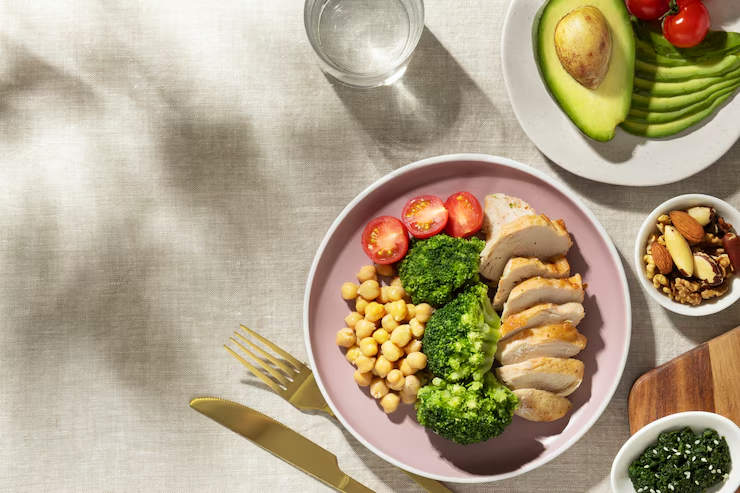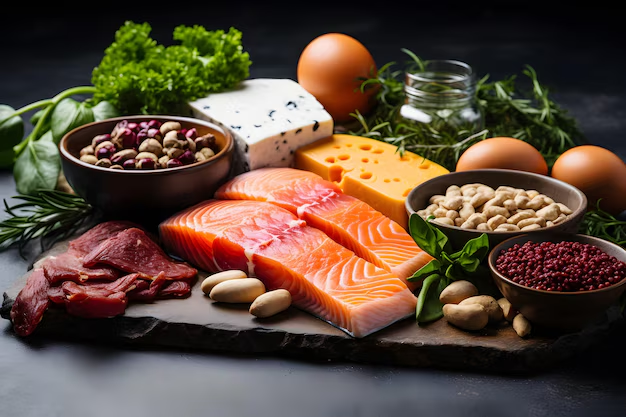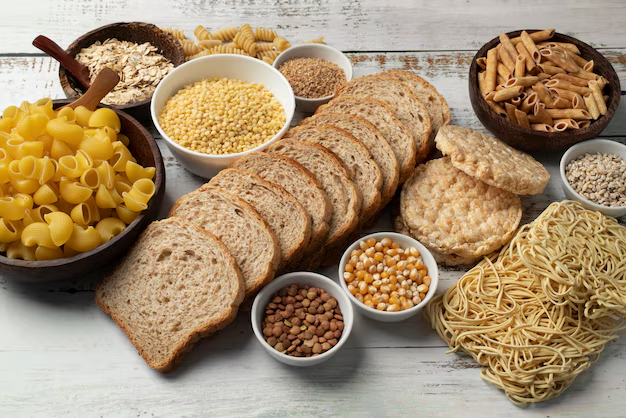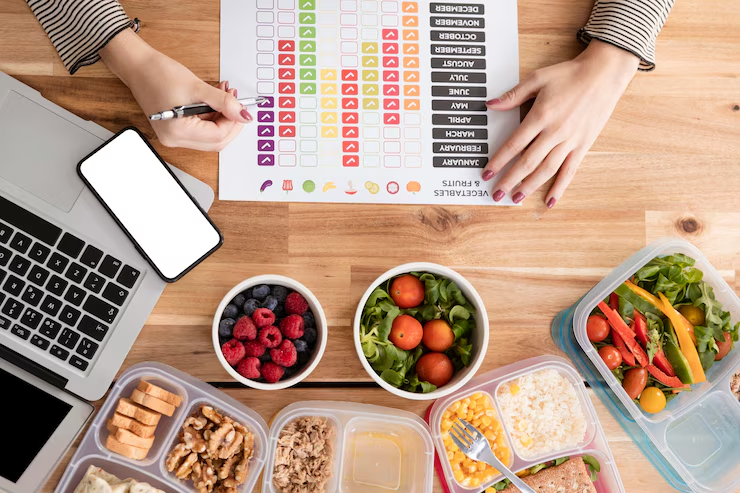Dinner isn’t just the final meal of your day—it’s a powerful chance to nourish your body and prepare for the next day. Choosing a healthy dinner can impact how well you sleep, how you feel in the morning, and how successfully you manage your weight and overall health. When planned wisely, your evening meal becomes more than just a routine—it becomes a way to support long-term wellness.
A nutritious dinner includes a balance of lean proteins, fiber-rich vegetables, whole grains, and healthy fats. This combination keeps you full longer, stabilizes blood sugar levels, and helps your body recover overnight. Whether you’re trying to shed extra weight, improve digestion, or simply feel more energized, making smart dinner choices plays a major role.
The good news? Eating healthy at night doesn’t have to be difficult or time-consuming. With some planning, variety, and simple strategies, you can make nutritious dinners a natural part of your routine. From choosing colorful veggies and whole grains to preparing meals ahead of time, even small changes can lead to big health improvements.
In this guide, we’ll dive into the essentials of healthy dinners—sharing top 8 tips, meal ideas, and practical advice to help you create balanced evening meals every day. Whether you cook for one or for a family, these strategies can make healthy eating enjoyable, satisfying, and sustainable.
What Is a Healthy Dinner?

A healthy dinner is a balanced, nutrient-dense meal made with whole, minimally processed foods. It should ideally include a source of lean protein—such as grilled chicken, fish, beans, or tofu—alongside colorful vegetables that provide fiber, vitamins, and antioxidants. Whole grains like brown rice, quinoa, or whole‑wheat pasta add complex carbohydrates to sustain energy, while healthy fats from olive oil, nuts, seeds, or avocado support brain function and nutrient absorption.
Building your plate this way ensures that Healthy Dinners deliver steady blood sugar control, promote muscle repair, and keep you feeling satisfied longer into the evening. For instance, pairing baked salmon with roasted Brussels sprouts and a side of quinoa drizzled with olive oil combines all four key components—protein, produce, grains, and fats—into one delicious, easy-to-prepare meal. You can swap in a chickpea curry over brown rice or a turkey and vegetable stir‑fry on whole‑wheat noodles to keep flavors fresh and your nutrition balanced.
Preparation is simple: choose two vegetables, one protein, one grain, and one healthy fat for each meal. Cook proteins and grains in batches at the start of the week, then mix and match with fresh or frozen veggies. Season with herbs, spices, and citrus instead of heavy sauces to keep sodium and added sugars low. Eating at a moderate pace and stopping when you feel comfortably full helps reinforce mindful eating habits, preventing overeating.
By making Healthy Dinners a consistent habit, you’ll enjoy improved digestion, better sleep, stable energy levels, and a stronger immune system. With minimal effort and maximum flavor, this approach transforms dinner from a routine chore into an opportunity to nourish your body and elevate your overall well‑being:
- Lean proteins (like chicken, fish, tofu, beans)
- Whole grains (brown rice, quinoa, whole wheat pasta)
- Healthy fats (avocados, olive oil, nuts)
- Plenty of vegetables (steamed, roasted, stir-fried, or raw)
- Minimal added sugars and unhealthy fats
Healthy dinners are not about eating less—they’re about eating right. You don’t need fancy ingredients or restrictive rules. The goal is simple: fuel your body with nutrients while enjoying what you eat.
Top 8 Tips for Healthy Dinners
1. Prioritize Protein (Healthy Dinners)
Creating healthy dinners is one of the most effective habits for maintaining long-term wellness, supporting weight management, and improving overall energy levels. A key element of a nutritious dinner is including a high-quality source of lean protein. Protein plays a crucial role in building and repairing body tissues, especially muscles, and also helps regulate your metabolism. It provides satiety, meaning it keeps you feeling full and satisfied longer—making it easier to avoid unnecessary snacking later in the evening.

Excellent protein options for healthy dinners include skinless chicken breast, turkey, fresh fish like salmon or tilapia, eggs, and low-fat Greek yogurt. These are not only rich in protein but also lower in saturated fat compared to red meats. For those following a plant-based or vegetarian lifestyle, there are equally nourishing options like lentils, black beans, chickpeas, tofu, tempeh, and edamame. These legumes and soy-based proteins also provide fiber and essential micronutrients, making them a smart, balanced choice.
When planning a healthy dinner, aim to combine your protein with fiber-rich vegetables, a serving of whole grains (such as brown rice, quinoa, or whole wheat pasta), and a touch of healthy fats like avocado or olive oil. This combination helps stabilize blood sugar, fuels your body overnight, and promotes better digestion. Preparing meals at home gives you full control over ingredients and portions, helping reduce sodium, added sugar, and unhealthy fats. With a bit of planning, healthy dinners can be both simple and delicious.
2. Fill Half Your Plate with Veggies (Healthy Dinners)
Creating a healthy dinner starts with one of the most important food groups—vegetables. They are naturally low in calories but packed with essential nutrients like fiber, vitamins, and minerals that support digestion, immunity, and overall health. Including a variety of vegetables in your evening meals is one of the simplest ways to improve your diet and promote long-term wellness.
Aim to eat a rainbow of vegetables each week to benefit from a wide range of antioxidants and phytonutrients. Leafy greens like spinach, kale, and arugula are rich in iron and calcium. Bright orange vegetables such as carrots and sweet potatoes offer beta-carotene for eye health. Red and yellow bell peppers provide a high dose of vitamin C, while cruciferous veggies like broccoli and cauliflower support detoxification and gut health. Zucchini, eggplant, tomatoes, and mushrooms add flavor, texture, and nutrition to any dish.
The way you prepare your vegetables also matters. Instead of frying or boiling them until mushy, try roasting with a drizzle of olive oil, steaming until tender, or lightly sautéing with herbs and garlic. These methods preserve nutrients and bring out natural flavors.
Including at least two types of vegetables in your dinner plate not only boosts nutrition but also keeps you full and satisfied, helping to manage weight and reduce cravings. When paired with a lean protein and a healthy carbohydrate, vegetables can transform your dinner into a truly balanced and wholesome meal.
3. Choose Whole Grains Over Refined Carbs

Whole grains provide more nutrients and fiber compared to refined grains. Swap white rice for brown rice or quinoa, white pasta for whole wheat, and white bread for multigrain. This helps keep blood sugar levels stable and supports digestion.
4. Use Healthy Fats Wisely
A nutritious dinner is essential for restoring energy, supporting digestion, and promoting restful sleep. One of the key elements of a healthy dinner is incorporating healthy fats, which are often misunderstood. Unlike trans fats or excessive saturated fats found in fried or processed foods, healthy fats—such as those from avocados, olive oil, flaxseeds, chia seeds, and nuts—play a crucial role in maintaining brain function, balancing hormones, and improving heart health.
These fats also help the body absorb fat-soluble vitamins like A, D, E, and K. Instead of cooking with butter or cream-based sauces, opt for healthier alternatives. For example, drizzle extra virgin olive oil over roasted vegetables, mash avocado into a creamy spread, or toss crushed nuts into a fresh salad for a crunchy twist.
Pairing healthy fats with lean protein, complex carbs, and plenty of colorful vegetables creates a balanced and satisfying dinner. Not only does it support long-term wellness, but it also keeps you fuller for longer—reducing the urge for unhealthy late-night snacking.
Building healthy dinner habits doesn’t have to be complicated. Simple swaps, smart portions, and whole ingredients can make your evening meals both delicious and deeply nourishing.
5. Watch Portion Sizes (Healthy Dinners)
Creating healthy dinners isn’t just about choosing the right foods—it’s also about how much and how mindfully you eat. Even the most nutritious meals can lead to overeating if portions are too large or if you’re eating on autopilot. A smart strategy is to use smaller plates. This simple shift helps control portion sizes and naturally prevents overconsumption.
Equally important is the pace at which you eat. Slow down during dinner—chew your food thoroughly, enjoy the flavors, and allow your body time to register fullness. This mindful approach helps reduce the chances of overeating and supports better digestion.
When building your dinner plate, aim for balance. A helpful visual is to divide your plate: fill half with colorful vegetables, a quarter with lean protein (like chicken, fish, tofu, or beans), and a quarter with whole grains (such as brown rice, quinoa, or whole wheat pasta). Add a small portion of healthy fats like avocado or olive oil for extra flavor and nutrients.
By combining nutritious ingredients with mindful eating habits, you’ll enjoy dinners that are satisfying, energizing, and aligned with your health goals—without feeling restricted or deprived.
6. Cook at Home More Often (Healthy Dinners)
Home-cooked meals let you control ingredients, reduce salt, sugar, and oil, and save money. Batch cooking or meal prepping can make weeknights easier and healthier.
7. Avoid Eating Too Late (Healthy Dinners)
When it comes to eating healthy, the timing of your dinner is just as important as what you eat. Having dinner too late at night can negatively impact both your digestion and sleep quality. When your body is still working to digest a heavy meal, it may interfere with restful sleep, leaving you feeling sluggish the next day.
For optimal health, aim to eat your dinner at least 2 to 3 hours before bedtime. This gives your body enough time to process the food, stabilize blood sugar levels, and enter a relaxed state before sleep. Ideally, dinner should be a balanced combination of lean protein, whole grains, vegetables, and healthy fats.
If you feel hungry closer to bedtime, choose a light and nutritious snack that’s easy to digest. A small bowl of yogurt, a banana, or a handful of nuts can be enough to curb your hunger without disrupting sleep.
Establishing a consistent evening meal schedule not only improves digestion but also supports your body’s natural circadian rhythm. Over time, this habit can lead to better energy levels, healthier eating patterns, and improved overall wellness.
8. Stay Hydrated

Often, what feels like hunger is actually dehydration. Drink a glass of water before your meal. Herbal teas can also aid digestion after dinner.
Why Healthy Dinners Matter
1. Supports Weight Management (Healthy Dinners)
A balanced dinner helps regulate hunger hormones and prevents late-night snacking. Eating whole, fiber-rich foods can make you feel satisfied and reduce cravings.
2. Promotes Better Sleep
Heavy, greasy, or sugary dinners can disrupt your sleep. On the other hand, meals with complex carbs and protein can support the release of melatonin and help you fall asleep more easily.
3. Improves Digestion (Healthy Dinners)
Fiber-rich dinners with vegetables and whole grains aid digestion and prevent constipation. Avoiding processed foods and fried items helps reduce bloating.
4. Boosts Energy Levels
Nutrient-dense dinners replenish energy stores for recovery and set the stage for a productive next day. Avoid sugar crashes by limiting sweets and soda.
Examples of Healthy Dinners (Healthy Dinners)
Here are some easy, delicious, and balanced dinner ideas:
- Grilled Chicken with Quinoa & Steamed Broccoli
- Baked Salmon with Sweet Potato and Asparagus
- Vegetable Stir-fry with Brown Rice and Tofu
- Turkey Chili with Beans and a Side Salad
- Whole Wheat Pasta with Pesto, Cherry Tomatoes & Grilled Veggies
- Chickpea Curry with Brown Rice and Spinach
- Zucchini Noodles with Ground Turkey and Tomato Sauce
- Stuffed Bell Peppers with Quinoa, Black Beans, and Cheese
Meal Prep Tips for Healthy Dinners
Plan Your Meals (Healthy Dinners)
Start each week by planning 3–5 dinner ideas. Keep ingredients fresh and diverse.
Batch Cook (Healthy Dinners)
Cook in large batches so you have leftovers for the next day. Soups, curries, and grilled proteins store well.
Prep Ingredients in Advance
Chop vegetables, cook grains, and marinate proteins over the weekend to save time during the week.
Keep It Simple
Healthy doesn’t mean complicated. A protein + veggie + grain + healthy fat formula works every time.
Avoid These Common Dinner Mistakes
- Skipping Vegetables: Aim for 2–3 cups of veggies in your meal.
- Relying on Takeout: Restaurant meals often contain excess salt, sugar, and fat.
- Eating While Distracted: Focus on your food. Avoid screens to prevent overeating.
- Overeating Healthy Foods: Even healthy foods have calories. Stick to appropriate portion sizes.
- Eating Too Fast: Slow eating improves digestion and allows you to feel full sooner.
Healthy Dinners for Specific Goals (Healthy Dinners)
For Weight Loss
- Grilled shrimp salad with avocado
- Cauliflower rice stir-fry with eggs
- Turkey lettuce wraps
For Muscle Gain
- Chicken breast with sweet potatoes and olive oil
- Lentils with brown rice and Greek yogurt
- Salmon with quinoa and kale
For Kids
- Mini veggie pizzas on whole wheat pita
- Baked chicken nuggets with steamed carrots
- Mac and cheese with hidden spinach and peas
Sample 7-Day Healthy Dinner Plan

| Day | Dinner |
|---|---|
| Monday | Grilled chicken, brown rice, green beans |
| Tuesday | Lentil curry with whole wheat roti |
| Wednesday | Baked salmon, quinoa, roasted vegetables |
| Thursday | Stir-fry tofu with broccoli and soba noodles |
| Friday | Whole wheat pasta with spinach and turkey meatballs |
| Saturday | Black bean tacos with avocado and corn |
| Sunday | Chicken soup with barley and side salad |
Expert Tips to Stick With Healthy Dinners
- Keep a recipe folder – store your favorite healthy meals for easy reference.
- Try new ingredients – add variety with seasonal produce or global cuisines.
- Cook together – involve family members to make dinner more fun and shared.
- Use healthy swaps – Greek yogurt instead of cream, herbs instead of salt, baked instead of fried.
- Don’t aim for perfection – consistency matters more than perfection. Allow yourself flexibility.
Frequently Asked Questions (FAQs)
1. What should I eat for dinner to lose weight?
Focus on lean protein, fiber-rich vegetables, and whole grains. Avoid heavy sauces, fried food, and sugar-laden drinks.
2. Is it okay to skip dinner?
Skipping dinner may lead to late-night hunger and poor sleep. A light, balanced dinner is better than skipping altogether.
3. Can I eat carbs at dinner?
Yes, especially complex carbs like quinoa, brown rice, or sweet potatoes. They provide fiber and energy without causing spikes.
4. What’s a quick healthy dinner idea?
Grilled chicken with frozen mixed vegetables and brown rice is fast, easy, and balanced.
5. How can I make dinner healthier for kids?
Use fun presentations, involve them in cooking, and sneak in veggies through sauces, soups, and smoothies.
Final Thoughts: Making Healthy Dinners a Lifelong Habit
Eating a healthy dinner isn’t just about what’s on your plate—it’s also about when you eat. Having dinner too late can disrupt your digestion and interfere with your sleep. A heavy meal right before bed may keep your body working overtime, making it harder to rest and leaving you feeling tired the next day.
For better health, try to eat your evening meal at least 2 to 3 hours before going to sleep. This allows your body enough time to digest, balance blood sugar, and enter a calm, restful state. A healthy dinner should include lean protein, whole grains, a variety of vegetables, and healthy fats. These nutrients help keep you full, support metabolism, and provide steady energy through the night.
If you’re still hungry before bed, choose a light, easy-to-digest snack. Options like a small banana, a few almonds, or plain yogurt can satisfy without disrupting sleep. Keeping a consistent dinner routine helps align your body with its natural circadian rhythm. Over time, this habit can boost your energy, improve digestion, and support a healthier lifestyle overall.
Healthy dinners fuel your dreams—one plate at a time.





